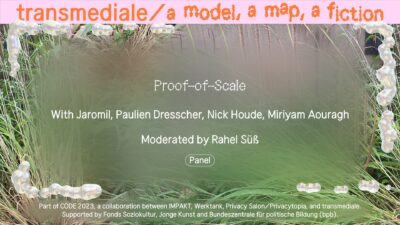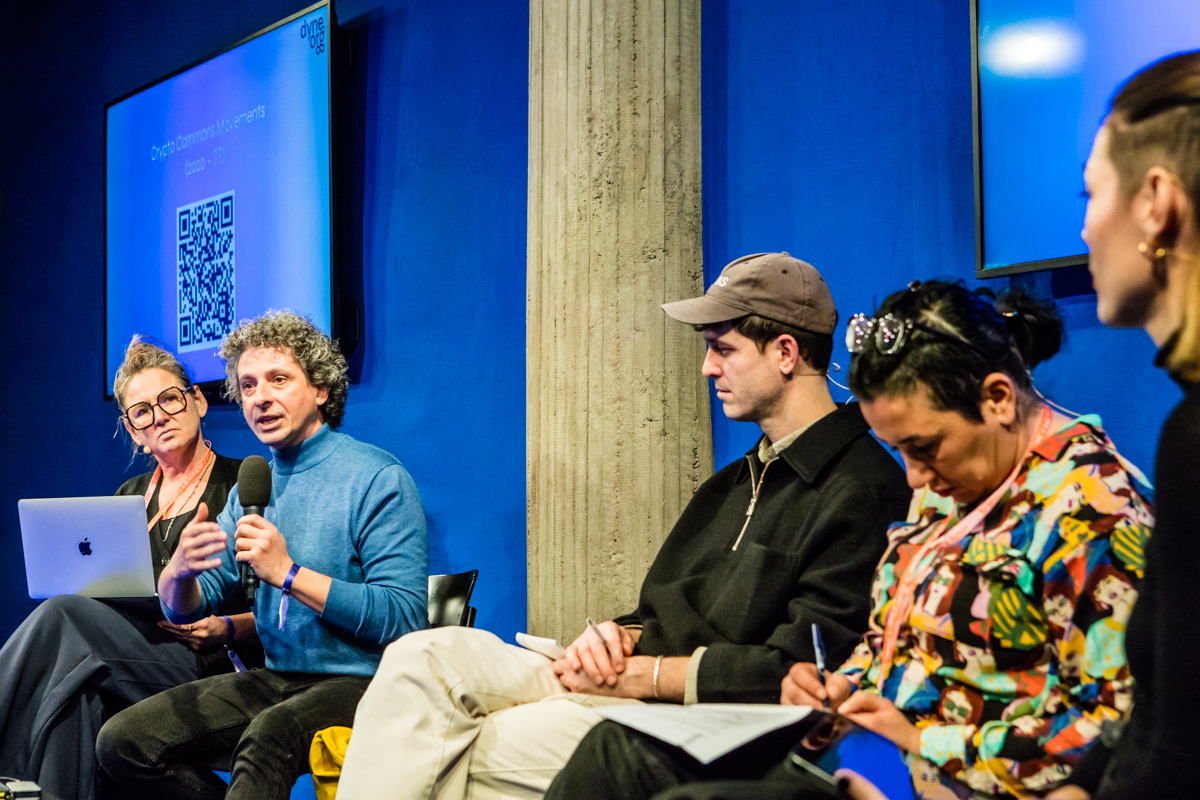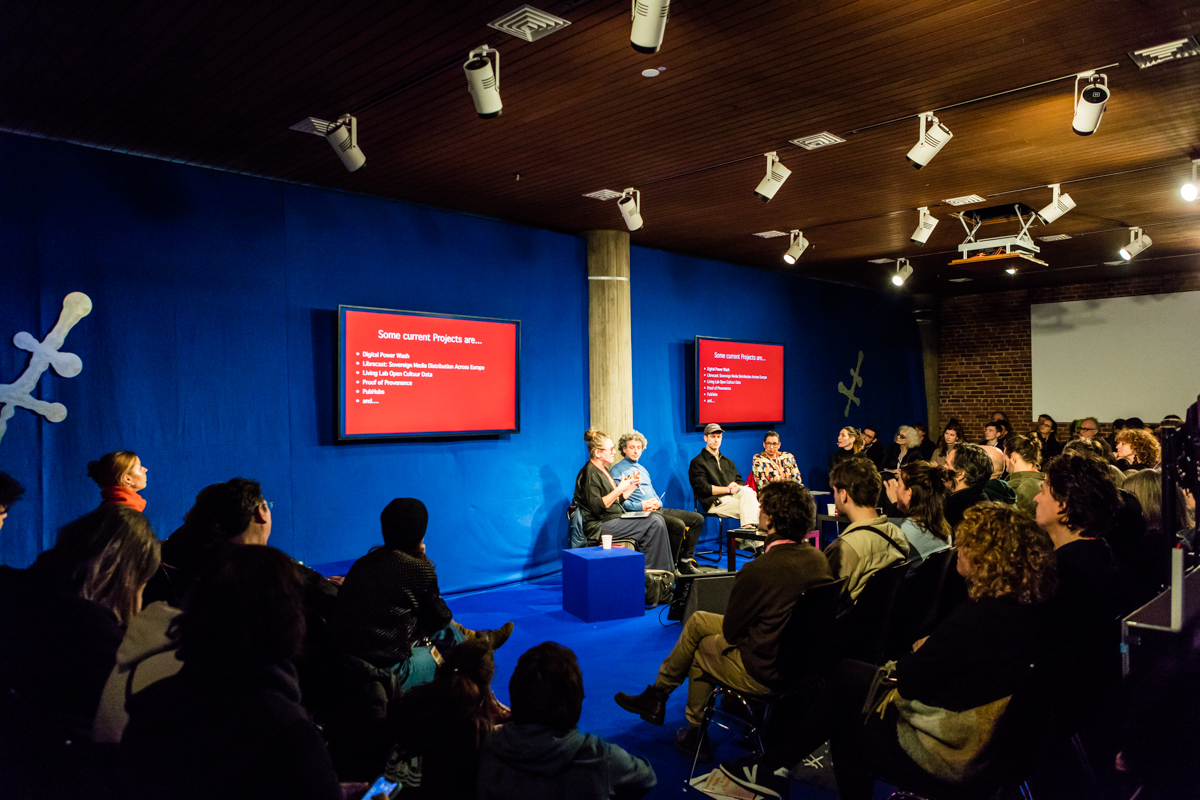with Jaromil, Miriyam Aouragh, Nick Houde, Paulien Dresscher
Moderated by Rahel Süß

Modelled on rules of computation, experiments with DAO’s, blockchains, and smart contracts all point to new possibilities for solutions to politics. Often seen in tension or in conflict with state or legacy structures, these models of techno-political organising and their structures have reconfigured ideas of sovereignty and imagined communities, leading to the development of new models, practices and processes for political engagement, governance, and consensus. However, despite claims that these technologies are able to enhance the democracy process, records show that governance mediated solely by code creates blind spots that obscure political decision-making and require human intervention and oversight.
In this panel, Miriyam Aouragh, Nick Houde, Paulien Dresscher, and Rahel Süß discuss the affordances of decentralised technologies and strategies for circumventing their failures. Together they question what political structures should be made between legacy institutions and emerging forms of digital autonomy, asking not only how new techniques and mechanisms for collective life may be implemented, but critically, how to engage policymakers, politicians, and different communities in their implementation.
This panel is part of CODE 2023, a collaboration between IMPAKT, Werktank, Privacy Salon/Privacytopia and transmediale.

